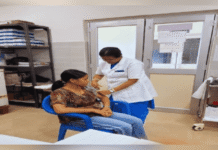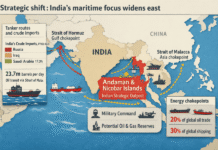Nancowrie Islands: A team from the ICAR-Central Island Agricultural Research Institute (CIARI) conducted an intensive three-day training programme in Nancowrie, geared towards improving tuber crop cultivation and value addition techniques. The event, held between June 16 and 18, targeted 118 Nicobari farmers from villages including Sanu, Kamorta, Vikas Nagar, Bada Enaka, and Munak.
Led by Dr I. Jaisankar, senior scientist and principal investigator for the All India Coordinated Research Project on Tuber Crops, the programme covered diverse topics: tuber diversity, conservation practices, organic cultivation methods, agronomic techniques, construction of tuber-based pig feed, sweet potato product development, and integrated disease management. It also incorporated monsoon season resilience training through the Gramin Krishi Mausam Seva initiative.
To support hands-on learning, the event included demonstrations and distribution of 50 “dweep leaf separators” that help strip coconut midribs, along with 500 sweet potato cuttings and 500 tapioca setts to participating households. The document’s training facilitation was overseen by Dr Santosh Kumar, head of the Car Nicobar Krishi Vigyan Kendra, Dr Abhilash and Talaviya Harshang Kumar, both specialists in natural resource management.
The purpose of the training was to empower farmers with practical agronomic skills adaptable to island microclimates and limited farmland availability. By promoting regenerative agriculture and organic pest control, the CIARI’s sessions aim to reduce chemical dependence and increase crop resilience, essential in monsoon conditions.
Director Dr E.B. Chakurkar praised the intervention, noting that improved tuber cultivation and waste reuse strategies can both enhance food security and support rural livelihoods in the Nicobari community. The technology transfers are expected to increase yield scales and provide farmers with new income opportunities through value-added products.
The training reflects CIARI’s broader aim of equipping island farmers with region-specific agricultural solutions, critical where remoteness often limits access to inputs and technical know-how. By integrating scientific research into local practices, these initiatives build long-term capacity and contribute to sustainable agriculture in tribal island communities.





